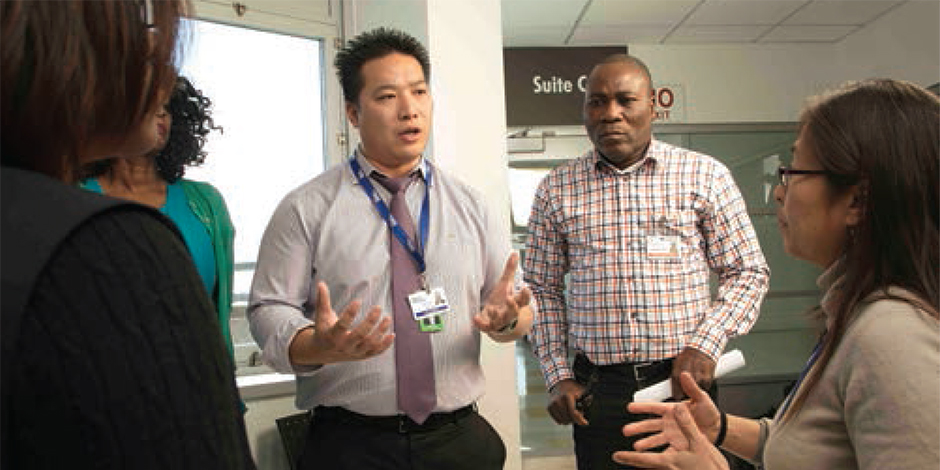NYC Health + Hospitals to Launch Employee Wellness Program to Address Emotional Stress and Burnout among Health Care Providers Who Are Considered "Second Victims" of Traumatic Events
New Helping Healers Heal Program Will Create a Cadre of In-house Mental Health Response Teams to Provide Emotional First Aid to Peers
Apr 16, 2018

NYC Health + Hospitals today announced the launch of a new peer-led employee wellness program that will offer emotional first aid to health care providers who are suffering from workplace stress or anxiety and may be at high risk of depression caused by the demanding circumstances of the job and unexpected patient outcomes. The new Helping Healers Heal program will be rooted in national research that points to health care providers as “Second Victims” of traumatic events commonly experienced in emergency departments, psychiatric units, and pediatric intensive care units.
Through Helping Healers Heal, specially trained teams will first be established at each of the 11 public hospitals to provide peer-to-peer support, mental health expertise, and team-debriefing sessions to staff members following traumatic events. The program will also be available at other patient care sites in the system and open to all employees of NYC Health + Hospitals. The new staff wellness initiative follows the model first adopted by Dr. Mitchell Katz, NYC Health + Hospitals president and CEO, and Dr. Eric Wei, NYC Health + Hospitals chief quality officer, when they served together in the Los Angeles public health system.
“There’s no question that health care professionals across the country provide great medical care under some of the most demanding circumstances,” said Dr. Katz. “At NYC Health + Hospitals, our Level 1 trauma teams are among the best in the country. Our mental health experts are the most skilled, compassionate professionals in the field. Yet, sometimes the emotional aftershock of treating victims of terrorist attacks or seeing a child die from the flu can cause deep pain and stress that too often goes unaddressed. After all, doctors and nurses are trained to care for others. But, we want our colleagues to know that when challenges arise, there is no shame in seeking help for themselves.”
“Even in a health system like NYC Health + Hospitals that has some of the world’s strongest health care professionals, the challenge comes when someone is pushed beyond normal limits because of an extremely stressful event,” said Dr. Eric Wei. “By quickly linking staff with peer support, we are helping them take the first step in processing feelings and identifying additional resources, so they can heal and continue to help heal others.”
One of the first Helping Healers Heal debriefing sessions took place following the death of a pediatric flu patient at NYC Health + Hospitals/Elmhurst in Queens.
“The death of a child is a particularly traumatic event for the entire family,” said Gregory Kenny, MD, a pediatric physician in the emergency department. “It is also traumatic for us. It felt good to be given the opportunity to be heard and to express my feelings. I think the debriefing brought our team closer together and strengthened our sense of community. We were able to learn from one another in a supportive environment and process the death as a group.”
The Joint Commission recently issued an advisory urging health care organizations to implement programs that offer support to staff following adverse events. Without adequate support, health care professionals are more likely to experience guilt and anxiety, reduced job satisfaction, symptoms of post-traumatic stress disorder, and even suicide ideation. According to the American Foundation for Suicide Prevention, an estimated 300 to 400 physicians die by suicide in the United States every year.
Research conducted by Albert Wu, MD, the physician who coined the term “Second Victim,” and Susan Scott, RN, PhD, indicates similar emotional support programs elsewhere have been shown to increase the overall safety culture and quality of care, as well as provide cost savings to the health care systems that successfully utilize them.